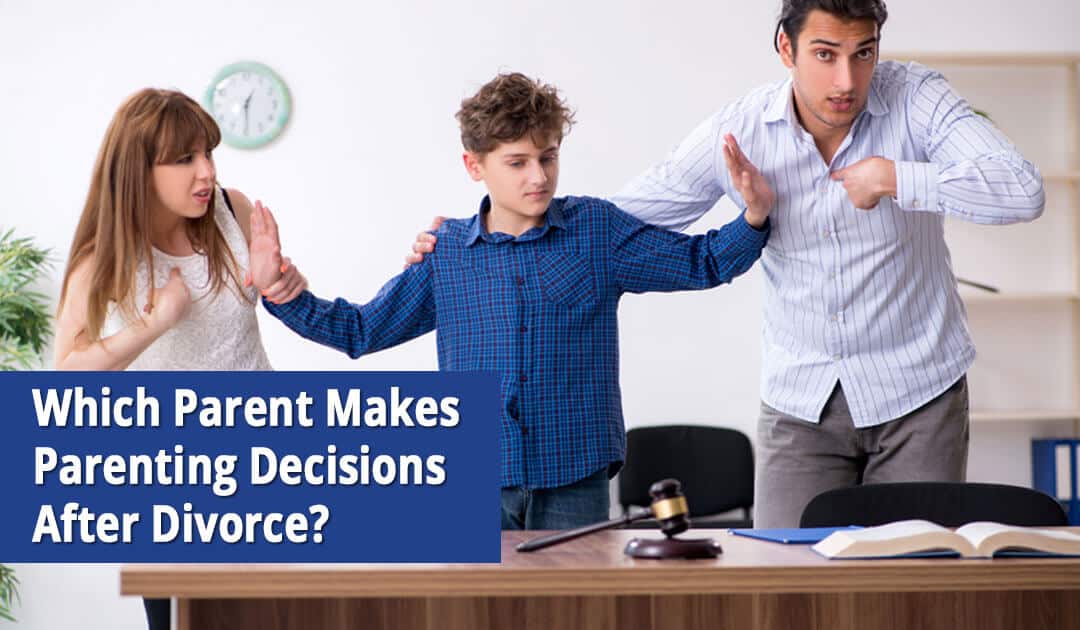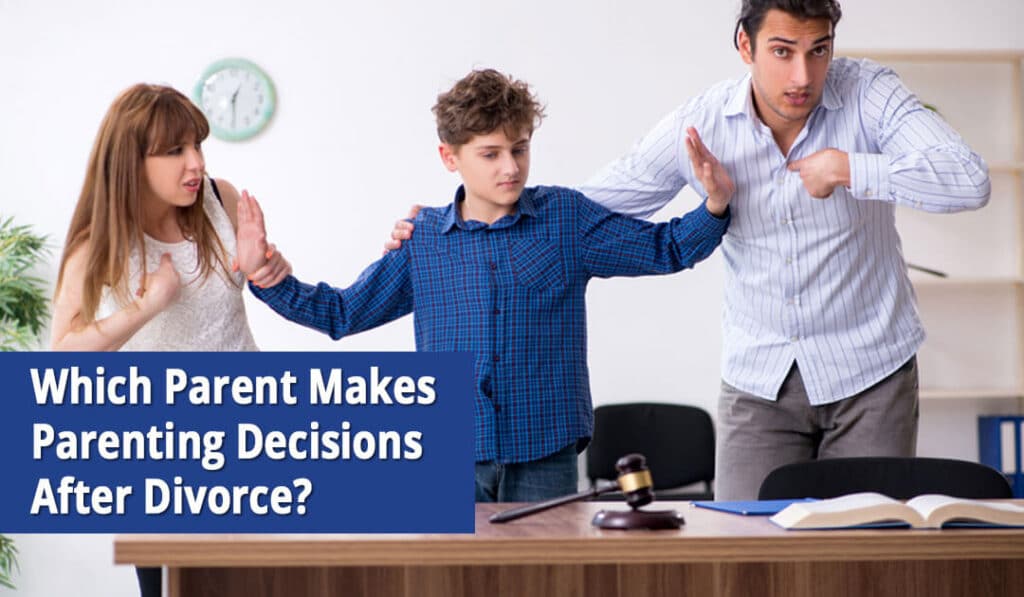Which Spouse Makes Parenting Decisions After Divorce?

The state of New York holds that outside of extreme circumstances like domestic violence, both parents have the right to make important decisions about their child’s living arrangements, education, extracurricular activities, health care, nutrition and discipline. However, which decisions are made by which parent varies widely from family to family.
Here are some examples of what custodial and noncustodial parents can weigh in on and how parents can protect their legal rights to their child with the help of an experienced Long Island divorce attorney.
How Decisions Are Made After a Long Island Divorce
Where the Child Lives
Divorcing parents should be able to reach an agreement about where the child lives. If of an appropriate age and maturity level, the child may also provide input about where they would like to live and with whom. If one parent wants to relocate with the child at a later date, both parents must either be in agreement or a court must rule in favor of the relocating parent for that parent to be able to move with the child. If a parent relocates without the permission of either the court or the other parent, this may be considered parental kidnapping and is subject to dire repercussions.
The Child’s Education & Extracurricular Activities
Unless one parent no longer has legal rights to their child, both parents are generally consulted regarding the child’s educational and extracurricular endeavors. This includes where the child attends school, which subjects they are enrolled in, and what after-school programs they participate in. If the child is old enough, a judge may consider their own wishes about where they want to attend school and which activities they want to be involved with.
Healthcare for the Child
In the absence of an emergency, healthcare decisions should also be made by both parents. They should agree on the child’s course of treatment, where they will be treated, and which parent will be responsible for what during their recovery, if necessary. In emergencies, medical professionals will usually defer to the parent who is present, unless that individual has no parental rights and is not legally with the child.
Food and Nutrition
Each parent will have the ability to decide what their child consumes while in their care. Unless one parent suspects the other of intentional malnutrition, neglect, or using food as punishment and can provide evidence, there is little that can be done if one parent disagrees with the other’s approach to meals.
Sleeping Arrangements
Generally, the custodial parent decides the child’s sleeping arrangements while the child is staying in their home. The noncustodial parent will decide the child’s sleeping arrangements during overnight visitation. Both parents will need to abide by court requirements for overnight stays, including providing the child with their own bed and private sleeping space.
Disciplinary Measures for the Child
In most cases, the parent with whom the child is staying has the right to determine which disciplinary measures are most appropriate given the circumstances. This goes for both the custodial parent and the noncustodial parent. Apart from instances of abuse, the custodial parent usually has no say in the disciplinary measures used by the other parent. If one parent feels that the other parent’s disciplinary measures cross the line, the best course of action is to contact law enforcement and Child Protective Services.
Legal Decisions Concerning the Child
If you have shared custody of your child, or even just legal custody, you must be consulted for all legal decisions pertaining to your child. This pertains to all legal matters, not just family law issues like divorce and child custody.
Get Help Protecting Your Parental Rights from an Experienced Long Island Family Lawyer
Co-parenting can be extremely difficult, especially when you and your child’s other parent aren’t on the best of terms or on the same page about how to raise your family. You may need experienced help advocating for your child’s welfare and best interests, and an experienced Long Island family attorney can help you do that. Without a lawyer, you run the risk of not being able to adequately advocate for your and your child’s rights, which costs you and your child in the long run.
At Hornberger Verbitsky, P.C., we understand how emotionally taxing child custody, visitation, and family legal issues can be. Our team of legal advocates are available to provide you with the guidance needed to navigate this difficult period of your life. Contact our office today to schedule your consultation by dialing 631-923-1910 or fill out the short form on this page.
SCHEDULE YOUR FREE CONSULTATION TODAY
Call 631-923-1910 or fill in the form below
Schedule your complimentary consultation and case evaluation with our experienced attorneys today. When you call, you’ll speak to our friendly Client Services Director, who will be able to answer your general questions and set up your appointment with an attorney who specializes in your unique case.
At your meeting, your attorney will describe the many options available and determine together which is the right solution for you. By the end of this meeting we’ll all understand how we can best help you to move forward.
No Cost or Obligation
There is no cost or obligation for this initial consultation. It is simply an opportunity for us to get to know each other, answer your questions and learn if Hornberger Verbitsky, P.C. is right the right law firm for you. Give us a call at 631-923-1910 or fill in the short form below to schedule your free consultation and case evaluation.
All Fields Are Required
